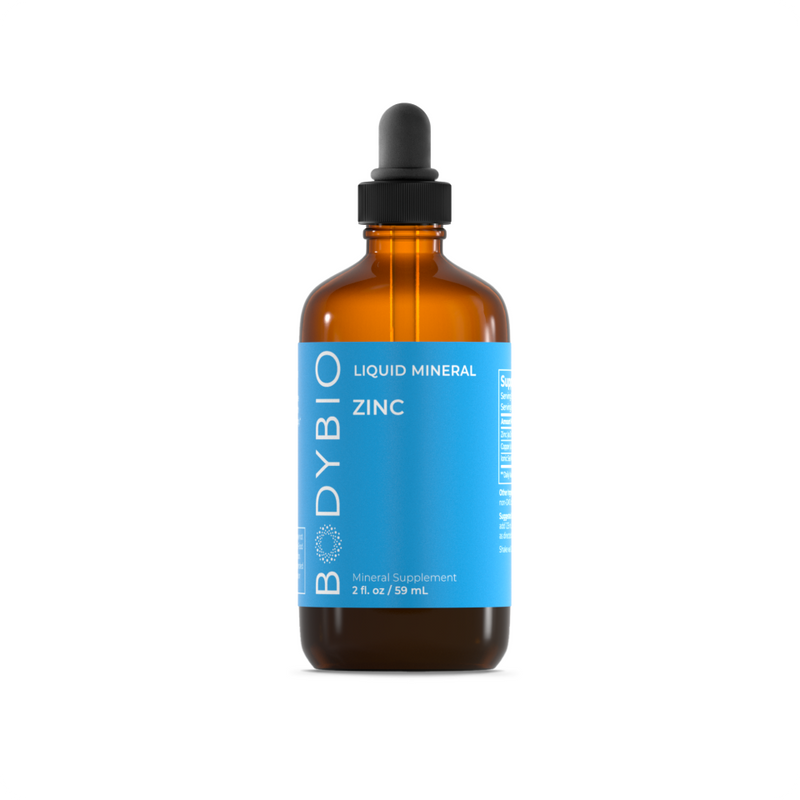Best Supplements and Vitamins for Fertility and Reproductive Health
Key Takeaways:
Fertility isn’t just about trying to conceive—it’s a reflection of your body’s overall (cellular) health and hormonal balance. Whether you’re preparing for pregnancy, trying to optimize your reproductive health for the future, or simply want to improve your health, fertility can offer important insights into your wellbeing.
From stress and inflammation to nutrient status and mitochondrial function, a wide range of factors can influence both male and female fertility. While nutrition isn’t the only piece of the puzzle, getting the right vitamins, minerals, and herbal support can help nourish your body and create a foundation for healthy and struggle-free reproductive health.
This guide explores the nutrients most commonly associated with fertility support—and how to incorporate them into your wellness routine.
Table of Contents:
-
Why Nutrition Matters for Fertility
-
Top Vitamins for Reproductive Health
-
Best Herbal Supplements for Fertility
-
How to Choose the Right Supplements for Your Needs
-
Final Thoughts on Natural Fertility Support
Why Nutrition Matters for Fertility
Reproductive health depends on the smooth coordination of hormonal, neurological, and cellular systems. Its obstacles are exposure to environmental toxins, physical and mental stress, and a lack of available nutrients. Hormones like estrogen, progesterone, and testosterone must be produced, metabolized, and regulated with precision. Egg and sperm cells rely on mitochondrial energy, antioxidant protection, and structural nutrients. Further on in the process, implantation and pregnancy maintenance require optimal circulation and immune regulation.
The body sees reproduction as optional—so if it senses stress, toxicity, or depletion, fertility often takes a backseat. That’s why addressing nutrient gaps, oxidative stress, and chronic inflammation is such a vital step. Supporting fertility naturally starts with rebuilding a solid foundation—and nutrition is a powerful place to start.
Top Vitamins for Reproductive Health
Vitamin D for Hormonal Balance
Vitamin D acts more like a hormone than a vitamin—and plays a central role in both male and female fertility. In women, vitamin D supports regular ovulation and endometrial receptivity. In men, it influences testosterone levels and sperm motility.
Low vitamin D levels are associated with subfertility and poor outcomes in assisted reproduction, so it’s worth checking your levels and supplementing if needed.
Vitamin E for Egg and Sperm Quality
Vitamin E is a fat-soluble antioxidant that protects reproductive cells from oxidative stress—a major threat to both egg and sperm integrity. In women, it may support ovarian reserve and uterine lining health. In men, vitamin E has been shown to improve sperm count and DNA integrity.
B Vitamins for Energy and Methylation
The B-vitamin family (especially B6, B12, and B9, folate) supports several fertility-related processes:
-
Methylation and DNA synthesis
-
Hormone metabolism and detox
-
Red blood cell production for oxygen delivery
Folate, in particular, is crucial for early fetal development and is often recommended before and during pregnancy. Active forms like methylfolate and methylcobalamin may offer better absorption for those with genetic polymorphisms like MTHFR.
Zinc for Fertility in Men and Women
Zinc is essential for hormone production, ovulation, sperm development, and immune health. It supports testosterone synthesis and sperm count in men, and regulates follicle development and egg maturation in women.
Even mild zinc deficiency can negatively impact fertility, making it one of the most important trace minerals to include in a preconception plan.
Best Herbal Supplements for Fertility
Maca Root for Reproductive Vitality
Maca is a Peruvian root traditionally used to support energy, libido, and hormonal balance. As an adaptogen, maca may help modulate the HPA axis and support healthy hormonal cycles. Research shows potential benefits for both male and female fertility, including sperm quality and sexual desire.
L-Arginine for Circulation and Uterine Health
L-arginine boosts nitric oxide, a molecule that enhances blood flow. This can benefit erectile function in men and uterine lining health in women—both important for conception. Improved circulation also delivers more oxygen and nutrients to reproductive tissues.
Ashwagandha for Stress and Hormonal Support
Ashwagandha is an adaptogen that reduces cortisol and supports thyroid function—two major factors in hormonal balance. Chronic stress is one of the most common contributors to fertility struggles, and ashwagandha may help restore calm and endocrine function naturally.
Tongkat Ali for Testosterone Support
Tongkat Ali (Eurycoma longifolia), also known as Longjack, is a traditional Southeast Asian herb used for generations to support male reproductive health. Research suggests it may help naturally increase testosterone levels, improve sperm quality, and reduce symptoms of low libido and fatigue.
In men with subfertility, Tongkat Ali has been associated with improvements in sperm concentration and motility. It may also help lower cortisol levels, indirectly supporting hormone balance and reproductive vitality. While more research is needed, it’s considered one of the most promising herbs for male fertility support.
Ginseng for Male Fertility and Energy
Panax ginseng is often used to support stamina, circulation, and hormone production. Studies show it may enhance sperm motility and count, while also supporting energy levels and resilience to stress—factors that indirectly support reproductive health.
How to Choose the Right Supplements for Your Needs
Not every supplement is right for every person. Consider these factors when building your fertility support stack:
-
Root cause: Are you addressing stress, nutrient gaps, inflammation, or hormonal imbalances? You may have multiple root causes—a qualified healthcare practitioner can help you figure out which to tackle first.
-
Formulation: Look for bioavailable formulas and single-ingredient products to better track results.
-
Lifestyle compatibility: Be mindful of diet, stress, sleep, and toxin exposure as essential context.
-
Stage of life: Preconception, postpartum, and perimenopause all require different approaches. For men, age, stress level, and lifestyle are relevant factors.
Start with foundational nutrients like vitamins and minerals and add targeted support based on your needs. Working with a practitioner—especially one trained in functional medicine or fertility nutrition—can help personalize your plan.
Foundational Fertility Support from BodyBio
While BodyBio doesn’t offer fertility-specific products, many of our supplements support the underlying systems that power reproductive health:
-
Liquid Zinc: Crucial for hormone synthesis, sperm health, and egg maturation.*
-
Vitamin B+ (B-complex): Supports methylation, hormone metabolism, and cellular energy production.*
-
Balance Oil: A clean source of omega-6 and omega-3 fats to support hormone production and inflammatory balance.*
-
BodyBio PC (phosphatidylcholine): Supports healthy cell membranes, liver detoxification, and egg quality.*
These foundational tools for cellular health can support your fertility journey naturally, whether you’re just starting or already working with a provider.
Final Thoughts on Natural Fertility Support
Fertility is a mirror—not just of reproductive capability, but of your body’s overall health, resilience, and cellular function. While no supplement is a magic fix, the right nutrients can help restore balance, support hormone regulation, and nourish the systems that make conception and pregnancy possible.
If fertility challenges persist, a healthcare provider can help rule out underlying conditions and build a more targeted strategy. But for many people, building a solid nutritional foundation is a meaningful first step—and one that benefits your whole body in the process.







